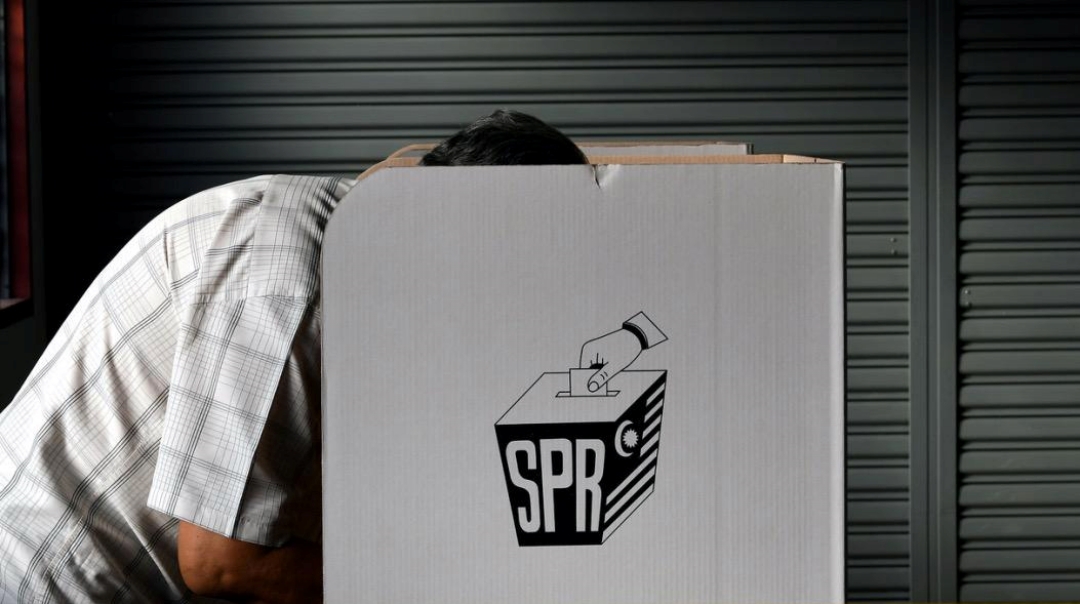
‘Only regular elections can ensure good governance’. — Bernama photo
THE freedom of association is among the nine fundamental liberties that are enshrined in the Constitution of the Federation of Malaysia (effective as at March 1, 2017). Such freedom is found at Article 10 of that Constitution. It is lumped together with the other freedoms (of speech, and of assembly).
If you want to know about the rest of the liberties, for good measure, here’s the list: Liberty of the Person; Slavery and Forced Labour Prohibited; Protection Against Retrospective Criminal Laws and Repeated Trials; Equality Regardless of Gender, Race or Religion; Prohibition of Banishment and Freedom of Movement; Freedom of Religion; Right to Education; and Rights to Property.
Quite a list, isn’t it?
What interests me is the ‘freedom of association’ – specifically when lawmakers leave their own party and join another, vulgarly known as ‘leaping frogs’.
In a 2020 Malaysian case known to lawyers as the ‘Nordin Salleh Case’, the court held that it was unconstitutional to remove the freedom of association from the legislator from Kelantan.
Unless and until that judgment is overruled by another case, or abrogated by an Act of Parliament, it remains the law of this nation.
In other words, frogging-hopping legislators are protected by law.
A legislator can do what he (and that includes ‘she’!) likes with his political life, forgetting about his obligation to the party, which put him up as a candidate and funded his campaign expenses.
The notion of honour is irrelevant as far he is concerned. The feelings of those who voted for him are of secondary importance; what matters most is the personal benefit that he will derive from leaving the party. No legislator leaves a party and joins another or becomes an independent lawmaker without a reason or two, best known to himself.
Bad law
This Nordin Salleh rule may be law in Malaysia, but it is bad law in the sense that the freedom of association can be abused with impunity by any legislator. If a large number of legislators switch allegiance, thereby upsetting the majority of parliamentary seats belonging to an incumbent government, the parliament no longer reflects the choice of the electorate. The ability of that government to rule is greatly affected.
This seems to be a perfect recipe for political instability in a country that has adopted a parliamentary system of government.
For instance, this ‘freedom of association’ by Malaysian lawmakers in 2019 had caused the downfall of an elected government. It’s a coup d’état, known as the ‘Sheraton Move’, staged by federal legislators who did not want to wait for the next general election in order to stay in power.
It is painfully obvious to the ordinary voters that the Sheraton Move was not necessary. The rebels could have waited for another general election, normally held every four or five years.
Political and economic life in the country would have been less chaotic without the power struggle, which is still on-going especially in Peninsular Malaysia.
Three Prime Ministers in three years!
It looks as if we’re going to be governed by a sheaf of ‘statutory declarations’. These pieces of paper become a potent instrument to undermine our human right in terms of universal suffrage. All you need is a bundle of papers signed by a sufficient number of legislators, duly witnessed by a Commissioner of Oaths, in order to form a government.
No need for a general election during which, the voters might display ‘an inconvenient freedom of choice’! No necessity for the continued existence of the Election Commission! Back to the feudal days!
Is that what we want?
I do not subscribe to a government of Malaysia that is formed on the strength of Statutory Declarations. The established system is not perfect, but it provides for more certainty; it provides space and opportunity for checks and balances; it provides competition among the citizens seeking power and authority.
Most importantly, it provides a chance to the voters to make a choice: either to retain the services of their incumbent lawmakers, or to choose new ones.
That is the real freedom of choice!
A functional constitution
The federal constitution has been amended many times for reasons considered necessary by the government of the day. The constitution of a democratic country must be functional and it is meant to be amended from time to time, or even abrogated, in order to meet the needs of the day.
So making any law that has the effect of deterring the lawmakers from hopping from one political party to another in order to sustain a democratic government, is long overdue.
It’s a necessity.
At all costs, once a government is in place, Malaysian MPs should be disciplined to respect the mandate given by the voters and to allow the government to carry on with the responsibility of governing and delivering the goods.
If any government cannot deliver the goods, then make a change of it by the only legitimate way – through the ballot box, and not by any other methods such as through the back door or through the hole in the roof!
Selamat Menyambut Hari Raya Aidifitri!
* Comments can reach the writer via [email protected].
